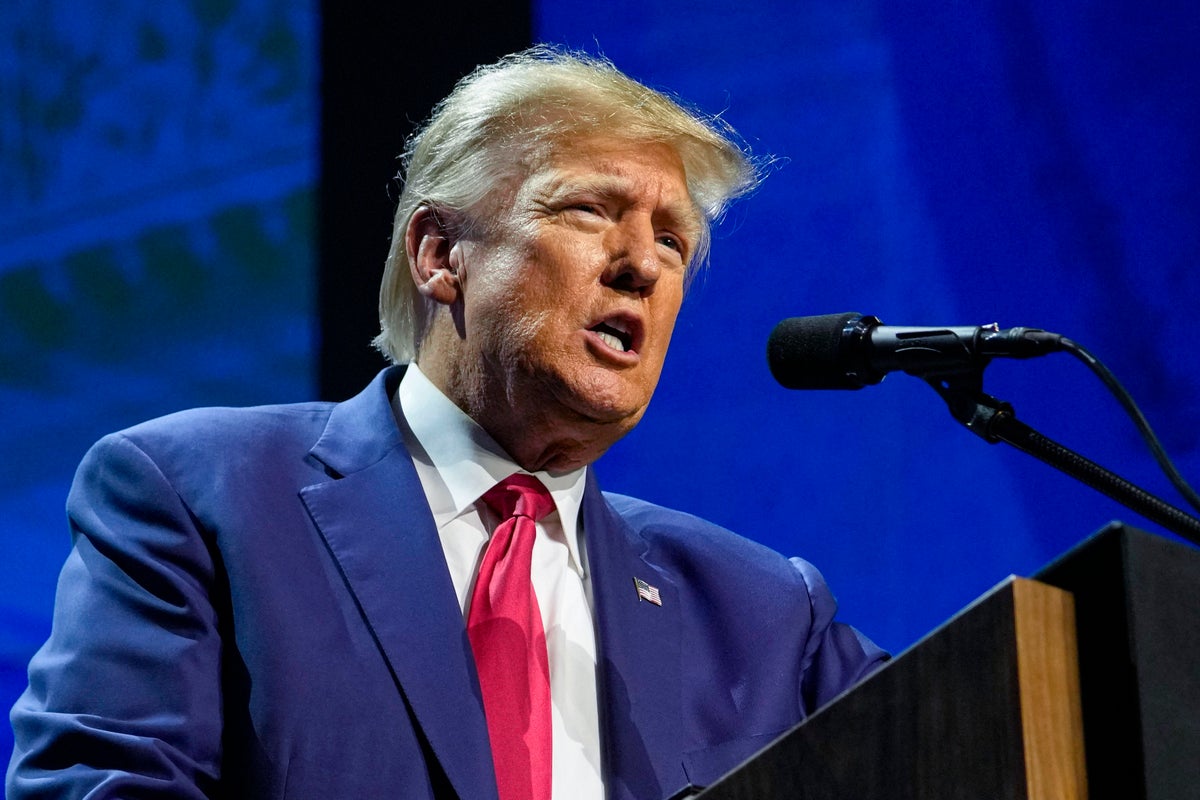
Donald Trump has been hit with a second sweeping indictment – at a time when he is hot on the trail for another stint in the White House.
The former president announced on Truth Social on 8 June that he has been indicted by a federal grand jury over his handling of classified documents after leaving the White House - less than a year after the Department of Justice found a cache of secret papers at his home in Mar-a-Lago, Florida. The DoJ later unsealed a 49-page, 37-count indictment accusing Mr Trump of showed highly-classified information to unauthorised persons on two separate occasions - among many other allegations.
Less than two months ago, he became the first former or current president to face criminal charges on 30 March when a Manhattan grand jury voted to indict him on criminal charges over the hush money payments to adult film star Stormy Daniels in the days before the 2016 presidential election. He pleaded not guilty in that case to 34 felony counts of falsifying business records in order to conceal an alleged scheme to illegally influence the 2016 election by suppressing negative stories about him.
And less than one month ago, a Manhattan federal jury found on 9 May that Mr Trump sexually abused Elle magazine columnist E Jean Carroll in a dressing room in Manhattan’s Bergdorf Goodman department store in the 1990s. Ms Carroll, 79, sued the former president for raping her and then “destroying” her reputation when he accused of lying about the encounter, claiming that she was not his “type”.
Now that Mr Trump has not one but two indictments on top of his loss in Ms Carroll’s case, what does his political future look like?
Can Trump still run for president?
In short, yes. There are no restrictions in the US Constitution preventing anyone indicted or convicted of a crime, or even currently serving prison time, from running for or winning the presidency.
Even if Mr Trump were to be tried and convicted in one of the so-called “quick trials” he has repeatedly cheered China’s government for operating in cases of drug offences, he could still run the entirety of his presidential campaign from a prison cell.
What is far less clear is what would happen were he to win in that scenario.
Just as there are no restrictions in the Constitution on a person running while under indictment, there is no explanation for what should occur in the event that they win.
There is nothing in the document that would automatically grant Mr Trump a reprieve from prison time, save for the likelihood that any charges brought by federal authorities, were they still being litigated at the point when he assumed the presidency for a second time, would be dropped due to the Justice Department’s refusal to prosecute a sitting president.
In Ms Carroll’s case, Mr Trump did not face any jail time because it was a civil trial.
State-level charges like the ones being filed by Mr Bragg in the Manhattan case are far trickier and would fall outside of Mr Trump’s prospective presidential pardon power were they to conclude in a conviction.
Were conviction on state charges to occur alongside a Trump election victory, it would likely lead to a massive legal fight to determine whether there was a way for the former president to worm his way out of serving time.
If Mr Trump was unable to avoid that outcome, it would almost certainly lead to his impeachment (for a historic third time) or removal via the 25th Amendment, which allows the Cabinet to remove a president who is unable to perform their duties.
There are many duties and trappings of the presidency that he would simply be unable to fulfill from a prison cell, the viewing of classified materials to name just one.
Any potential conviction of Mr Trump is still a long way off and little more than a distant possibility.
But the conversations he has started with his bid for the presidency, despite facing two indictments and multiple criminal investigations, have already pushed parts of theoretical US constitutional law into a much realer place than many experts ever believed they would live to see.
This story was updated on 8 June 2023 to reflect new developments







